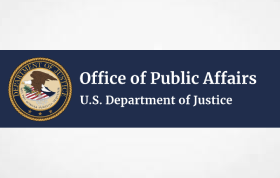Earlier this month, the FDA released a seven-page plan to accelerate its research into the safety of cannabis-derived products. The plan follows two reports to Congress last year (which the Perkins Coie Cannabis Industry Group has previously written about here and here) on the safety and labeling of products containing cannabidiol (CBD) and a public statement from outgoing FDA leadership in early 2021 seeking better data for a better understanding of CBD safety. For those in the industry hoping that this latest FDA announcement is the agency’s long-awaited CBD enforcement guidance, the wait continues. Instead, the FDA recognizes that “the growth of the [cannabis-derived product] market continues to outpace the growth in the science and our understanding of the public health implications of these products.”
Before issuing new rulemaking and guidance, the FDA’s new data acceleration plan notes that the agency “needs a better understanding of the quality and safety systems that are currently in place across the overall supply chain from origin, manufacturing, and distribution to consumer usage” with regard to products derived from cannabis. According to the agency, the market for these products is “fragmented and dynamic” “with hundreds of small manufacturers selling products online,” and is “rife with potential quality and safety concerns.”
The FDA’s new data acceleration plan aims to “leverage novel data sources and advanced data analytics to identify current and emerging safety vulnerabilities” regarding cannabis-derived products using a “portfolio of pilot initiatives and partnerships.” These projects may include, but is not limited to:
- A mapping of Certificates of Analysis data and comparing that information against FDA’s own testing of products;
- Using qualitative and quantitative data to understand healthcare providers’ perceptions on the safety and usage of cannabis-derived products; and
- Piloting market surveillance tools to monitor unapproved cannabis-derived products and “identify potential safety issues before the issues become mainstream.”
The FDA indicated that it “needs a suite of modern, flexible tools and processes that can be used across cannabinoids and other emerging substances to complement existing safety monitoring capabilities,” as the agency continues to understand emerging segments of the cannabis-derived product market. This emphasis on obtaining more information suggests the FDA is some time away from developing a robust, national CBD enforcement strategy. While the Farm bill was signed into law in 2018, the FDA has yet to promulgate regulations related to CBD. The agency’s continued delay has led to considerable confusion for businesses and consumers alike. It has also led us to an unenviable place where unregulated, untested, and potentially dangerous and intoxicating products are being sold at gas stations and convenience stores.
While the agency still lacks a Senate confirmed Commissioner, it still has a duty to protect and educate the public and regulated businesses, which often depend on FDA guidance. For example, a recent poll from the Consumer Brands Association found that 74% of consumers incorrectly assumed that CBD products were already federally regulated or had no idea about CBD’s regulatory status. In a letter to FDA leadership earlier this year, the Consumer Brands Association wrote: “Until the federal government establishes clear, uniform standards for testing, safety and ingredient levels, this market will continue to grow without appropriate federal oversight, potentially placing American consumers at risk.” This new data acceleration plan is a step toward in the FDA’s regulation of cannabis-derived products, but just how far the agency is willing to go to regulate this market and when it will act remains unsettled. And the clock is ticking.
The content of this article is intended to provide a general guide to the subject matter. Specialist advice should be sought about your specific circumstances.


















